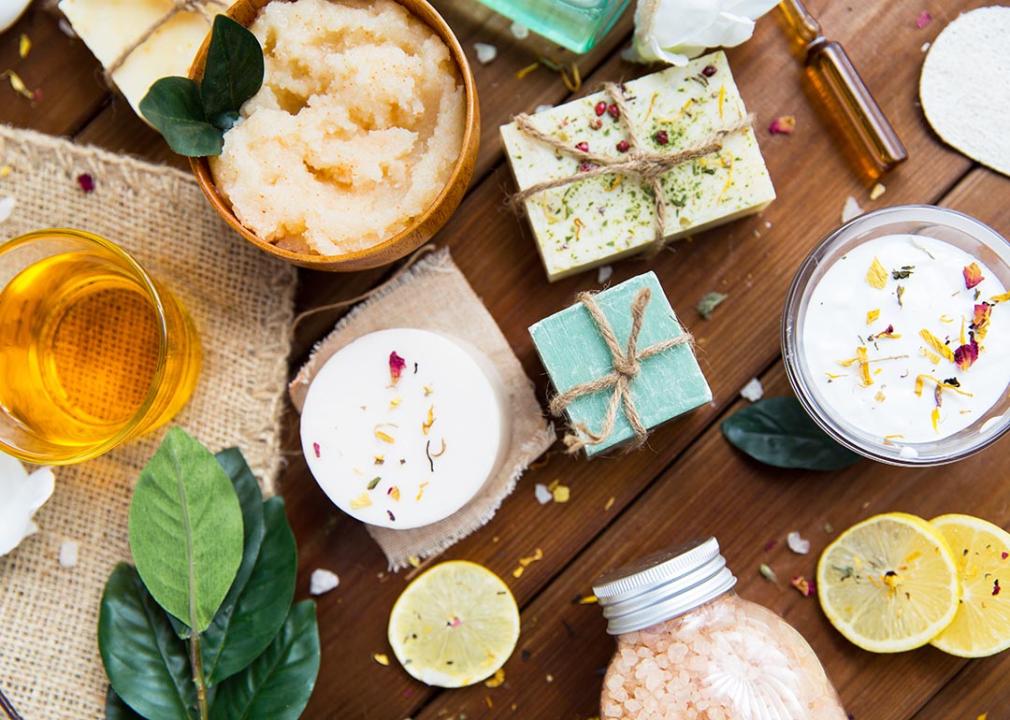
Natural beauty products: What does the label really mean?

Ground Picture // Shutterstock
Natural beauty products: What does the label really mean?
To try and define "nature" is, to use a variety of hackneyed natural metaphors, to stir up a hornet's nest, or to stumble into a quagmire, to step into a snakepit, or, maybe more to the point, to fall face-first into a vat of restorative all-natural micro-exfoliating glow-inducing skin serum. People tend to see nature as what lies beyond our normal, everyday experience: If they're asked to locate it, they might place it somewhere far away, in a beautiful wilderness, or long ago, in an ancient past, or deep inside ourselves, in some way of being that modern society has stifled. Still others tend to think of nature in terms of extremes: Either it's trying to kill you (snakes, quicksand, hornets), or it's the essence of beauty and innocence.
Whatever nature or natural is, Economic Hardship Reporting Project and Teen Vogue report, it's a gold mine: The organic food and beverage market was valued at $208.18 billion worldwide in 2022, and consumers seem drawn to similarly astonishing sums for foods variously labeled "natural," a marketing term that is largely unregulated by the federal government. The Food and Drug Administration has not yet established a formal definition for using natural when it comes to food labeling. The Department of Agriculture, meanwhile, holds only that natural chicken must contain no artificial ingredients or colors and be minimally processed—which describes most ready-to-cook chicken that can be bought in America.
If nature simply means what Merriam-Webster says it means—"the external world in its entirety"—there's nothing too specific or necessarily good about it. After all, the earth is full of unappetizing things, like wood, cotton, and bamboo fiber, which when cooked at a high temperature, yield cellulose. As Consumer Reports explains, it's all that cellulose that helps keep Kraft's natural shredded cheese from sticking together in the brand's creamy mac and cheese.
The vague commercial use of the word natural to mean something pure, clean, and untouched by technology plays upon the partly environmental, partly religious, and largely fantastical notions we have about nature. This is nature as our original state of being (Adam and Eve in the Garden of Eden), as our truest instincts and desires (our human nature), or the way we used to be before civilization changed us. In America, this has always been an imperialist fantasy about Native Americans. It's a fantasy, first of all, about Native people, that before Europeans arrived, they lived in an untouched wilderness they did not know how to manage or exploit. And it's a fantasy about Americans, so they can expunge their guilt for pillaging the land and its inhabitants. (This helps explain the perverse way in which American settlers named the land they conquered after the people they conquered it from—see Massachusetts, for example, or Omaha). The fantasy of the natural Indian and his vanished wisdom—which often presumes that Native Americans have also vanished—now lives on in the seemingly respectful, admiring, even reverential tones of wellness culture.
So what should we call this thing, which is made up of trees, flowers, fire, rain, mosquitoes, snakes, quicksand, and, in modern times, a whole lot of plastic? Brian Allnut, who edits the environmental news site Planet Detroit, sees no "meaningful distinction between 'nature' and anything else," he told Teen Vogue. "Whatever people do, no matter how destructive or seemingly removed from their surroundings, they're a part of nature, working with materials from the earth and being influenced by the ecological realities that surround them." This requires a less reverential and more respectful attitude toward the natural world. Sometimes, nature isn't particularly beautiful—and it won't always clear up your skin. In fact, a lot of it is actually trying to kill you!
The market for natural products and cures that claim to bring consumers closer to nature by removing toxins from their bodies or keeping them from ever entering in the first place, is an understandable reaction to the fact that people live in a deeply contaminated world. Microplastics lurk in the deepest oceans, and even Arctic ice melt can be too contaminated to drink. The more that consumer capitalism contaminates the biosphere, the greater the demand it creates for products that promise to purify or absolve society. But there's no pure state people can ever get back to, no matter how much stuff they buy. Nature is part of people. And they, for good and ill, are part of it.
![]()
This story was produced by the Economic Hardship Reporting Project and Teen Vogue, and reviewed and distributed by Stacker.
